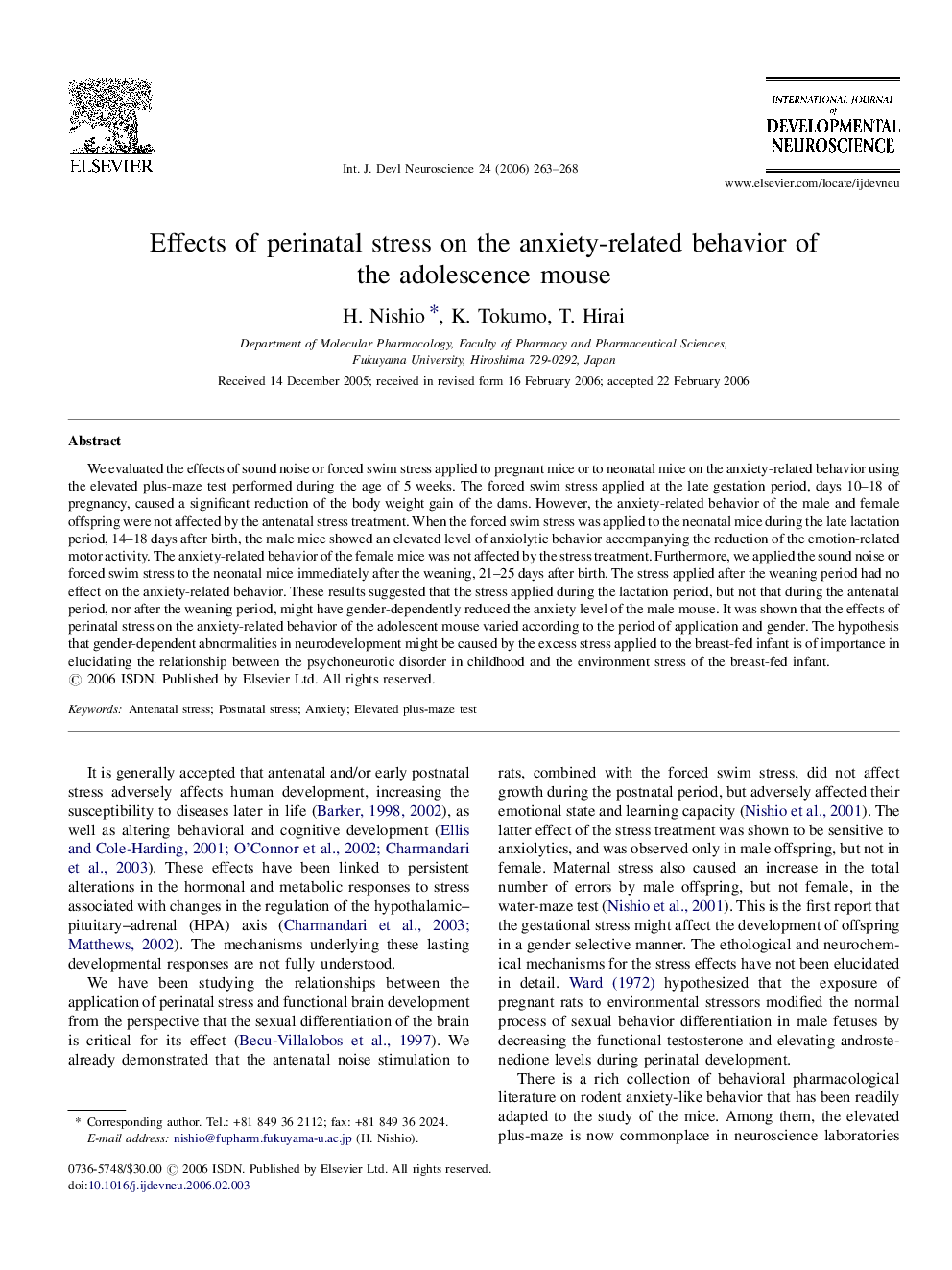| Article ID | Journal | Published Year | Pages | File Type |
|---|---|---|---|---|
| 2787117 | International Journal of Developmental Neuroscience | 2006 | 6 Pages |
We evaluated the effects of sound noise or forced swim stress applied to pregnant mice or to neonatal mice on the anxiety-related behavior using the elevated plus-maze test performed during the age of 5 weeks. The forced swim stress applied at the late gestation period, days 10–18 of pregnancy, caused a significant reduction of the body weight gain of the dams. However, the anxiety-related behavior of the male and female offspring were not affected by the antenatal stress treatment. When the forced swim stress was applied to the neonatal mice during the late lactation period, 14–18 days after birth, the male mice showed an elevated level of anxiolytic behavior accompanying the reduction of the emotion-related motor activity. The anxiety-related behavior of the female mice was not affected by the stress treatment. Furthermore, we applied the sound noise or forced swim stress to the neonatal mice immediately after the weaning, 21–25 days after birth. The stress applied after the weaning period had no effect on the anxiety-related behavior. These results suggested that the stress applied during the lactation period, but not that during the antenatal period, nor after the weaning period, might have gender-dependently reduced the anxiety level of the male mouse. It was shown that the effects of perinatal stress on the anxiety-related behavior of the adolescent mouse varied according to the period of application and gender. The hypothesis that gender-dependent abnormalities in neurodevelopment might be caused by the excess stress applied to the breast-fed infant is of importance in elucidating the relationship between the psychoneurotic disorder in childhood and the environment stress of the breast-fed infant.
